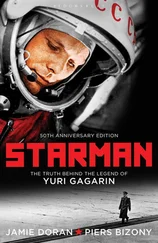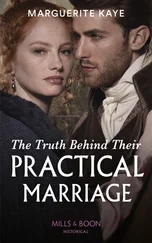Idina’s engagement to Joss was announced in the Tatler on 19 September: ‘Lady Idina Gordon … is taking as her third husband, Mr Josslyn Hay, who will one day be the Earl of Erroll.’ The couple were on holiday at the Palazzo Barizizza on the Grand Canal in Venice when the announcement came out. Their hostess was Miss Olga Lynn, an opera singer manquée. Joss and Idina knew her as Oggie. She was not popular with everyone but had a loyal following, giving amusing and glamorous dinner parties for twenty at a time. Witty epigrams would be exchanged and ‘stunts’ performed for everybody’s entertainment. Oggie’s exotic set included Cecil Beaton, Tallulah Bankhead, Lady Diana Cooper, and Sir Oswald Mosley and his wife Cynthia – known in that circle as Tom and Cimmie. They would dine out at the Restaurant Cappello, much favoured by the Prince of Wales. 44 Everyone knew one another. Whether swimming naked by moonlight in Venice, or attending Goodwood or Henley, their individual appearances and frolics were almost religiously recorded in the Tatler and the Sketch. This holiday in Venice cemented Joss’s friendship with Tom Mosley and ensured Joss and Idina a place in Oggie’s circle.
The Mosleys and Joss and Idina epitomised the postwar exuberance – they were highly optimistic about their own futures as well as the world’s, and they went about their lives on billows of hedonism. As Tom Mosley wrote, ‘We rushed towards life with arms outstretched to embrace the sunshine, and even the darkness … [we experienced the] ever varied enchantment of a glittering and wonderful world: a life rush to be consummated.’ 45 They were rich and they believed they could do anything. As far as they were concerned, war was over for ever.
In one photo, Joss and Idina parade on the Lido, Idina in a pleated white dress by Molyneux, as always, happy to show off her size-three feet by going barefoot. Hand in hand with his future wife, Joss follows the trend for ‘wonderful pyjamas in dazzling hues’. 46 Tom Mosley, having been invalided out of the war, was forced to wear a surgical boot to redress an injury from an aeroplane crash. But his charisma more than compensated for his handicap, which was no impediment to attracting the likes of Idina and other beauties of the day with whom Joss had also dallied.
Mosley was the youngest Tory MP in 1919 but, within a year of meeting Joss, would leave the party in protest against the repressive regime in Ireland, switching allegiances to join Labour. Mosley would also give Neville Chamberlain ‘a terrible fright’ at Ladywood, Birmingham, contesting his seat and losing by only seventy-seven votes. Joss would emulate Tom’s style. They both fell for the same type of woman, and politically Joss’s ideas tallied with his at that time. They both believed that they could turn the world into a better place, providing they were given the power to act.
The Mosleys attended Joss’s and Idina’s wedding on 23 September. In their wedding picture, all arrogance is missing from Joss’s demeanour, replaced by a seldom seen expression of shyness or self-consciousness. Idina’s cloche hat is pulled firmly down. Wearing a brocade dust-coat trimmed with fur and her corsage of orchids, the bride looks, at best, motherly; she was thirty. Joss’s best man, the Hon. Philip Carey, and Idina’s brother Lord De La Warr were the witnesses. After the ceremony, Idina’s brother, Prince George of Russia, Tom and Cimmie Mosley and Lady Dufferin celebrated with them at the Savoy Grill. 47 Joss’s family is conspicuous by its absence. The couple cannot have been inundated with wedding presents, given the circumstances, but Tom and Cimmie gave Idina ‘a crystal-and-gilt dressing table set, personally designed by Louis Cartier, and engraved with her initials and a coronet’. 48
Lord Kilmarnock went berserk when he heard the news from London that Joss and Idina were married. According to Bettine Rundle, the rumpus had to be seen to be believed. For all Joss’s defiance of his parents’ wishes, he must have had a twinge of conscience because he returned to Coblenz with Idina to make his peace early in the New Year of 1924. 49 Despite their rage and disappointment over Joss’s squandered abilities Lord and Lady Kilmarnock appear to have forgiven the couple for when their stay at the residence ended they were piped out by Lord Kilmarnock’s sentry, Captain Alistair Forbes Anderson. This was an honour they would not have received unless they were back in Lord Kilmarnock’s favour. 50
Having ruined a promising career with the Foreign Office, possessing no money, and limited by the social restrictions that marriage to a divorcee imposed, Joss must have looked on Africa as an ideal escape. It was being said that he had ‘married … because he was very young and very headstrong and because Lady Idina had considerable income from De La Warr’. If this criticism was fair, Joss was following in the tradition of his ancestors. However, the Hays inspired jealousy in those who weren’t so witty or as attractive, and these allegations of marrying for money could have been thus inspired. 51 Idina would always have her detractors; she was too successful with men not to attract criticism. Being well read and knowing absolutely ‘everybody’ – from Diana Cooper to Florence Desmond – she did summon a certain envy. And her legendary sexual appetite did not endear her to people. Even her future son-in-law Moncreiffe, not prone to exaggeration, pointed out, ‘My mother-in-law was a great lady, though highly sexed.’ 52
Some time after their visit to Coblenz to make peace with the Kilmarnocks, Joss and Idina Hay sailed off with all their chattels, ready for their first home together. Joss was embarking on his first voyage to the Dark Continent with the recklessness of a schoolboy gambler. Their fellow passengers would have consisted of government officials, business entrepreneurs, missionaries and big-game hunters. During the voyage attempts were made by most of those expecting to stay in Kenya to study a slim volume called Up Country Swahili. However, Idina and Joss were up to their usual pranks, courting scandal in a manner for which they were soon to become infamous. After a week or more cooped up on board Joss found himself shoved into a lavatory in one of the state rooms with the key turned on him by his female companion, ‘in order to escape an outraged husband’. 53 Joss had narrowly missed being caught in the act of fellatio when the woman’s husband had arrived at their stateroom door wondering why on earth she was taking so long to dress for dinner. She apologised coolly and promised to join him after she had completed her toilette. Meanwhile, as the sun went down, Idina had been sipping ‘little ginnies’ in the ship’s cocktail bar. She recounted the incident with evident relish and amusement to someone who, on a visit to the British residence in Coblenz, relayed the anecdote to Bettine Rundle. According to Bettine’s informant, Idina had blamed herself for Joss’s behaviour; he had learned from her how to be such a rake. 54
*In those days, applicants also had to prove they received a private income of at least £400 per annum.
*Menzies had served with distinction in the First World War. There was a widespread belief in the services that he was the illegitimate son of Edward VII. He was certainly closely connected with court circles through his mother, Lady Holford, who was lady-in-waiting to Queen Mary. He also had considerable influence in important government circles, and ‘as a ruthless intriguer’ used it shamelessly. In personal relationships Menzies was polite but never warm, ‘hard as granite under a smooth exterior’, as the wife of one of his Security Service colleagues observed. He drank heavily, loved hones and racing and was a club man (Philip Knightley, The Second Oldest Profession , p. 112). When he took over the SIS after Admiral Sinclair’s death in 1939 he was forty-nine. His successor, Sir Dick White, noticed that the file on Menzies was missing from the registry. The wartime chief had deliberately avoided any records ‘to preserve the fiction that he was the illegitimate son of Edward VII. “I paid ten shillings,” laughed White, “and got the name of his real father from Somerset House.”’ (Tom Bower, The Perfect English Spy: Sir Dick White and the Secret War 1935–90 , p. 209).
Читать дальше












